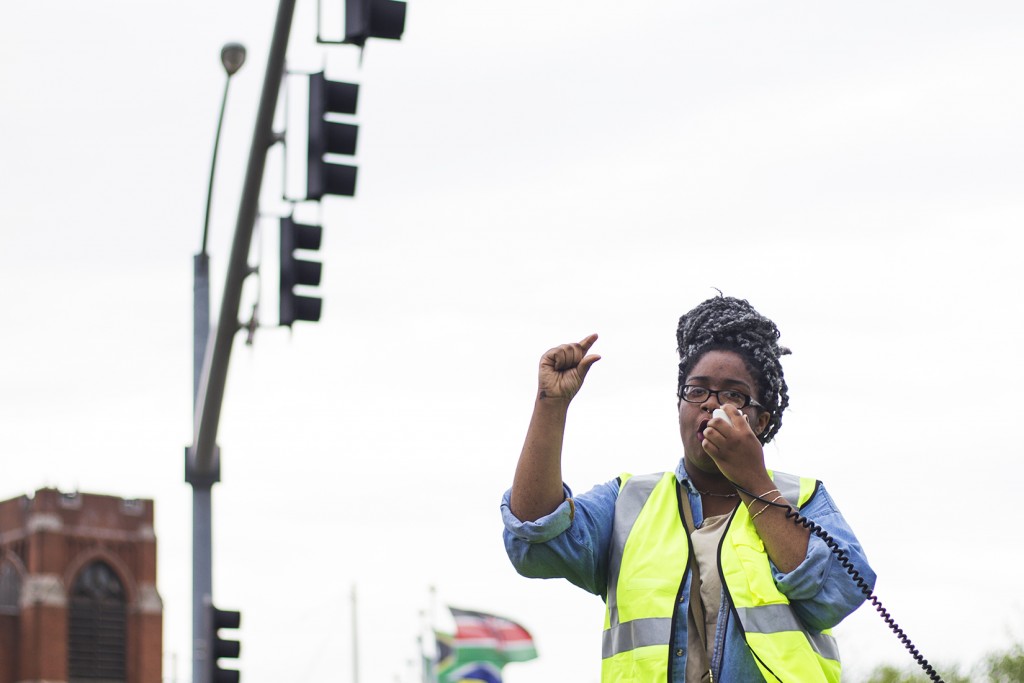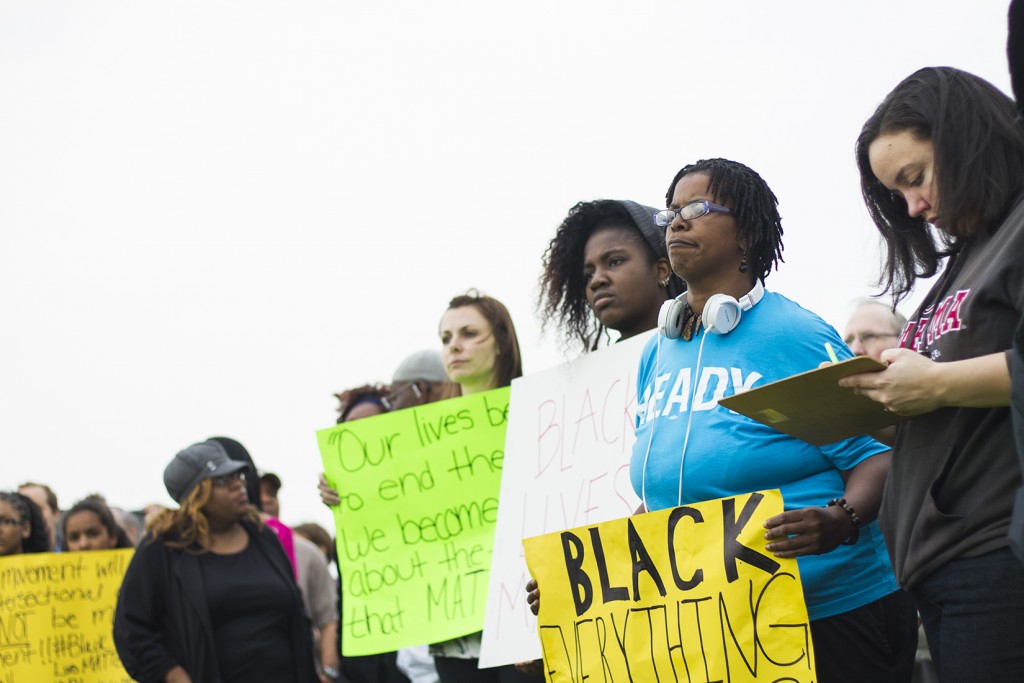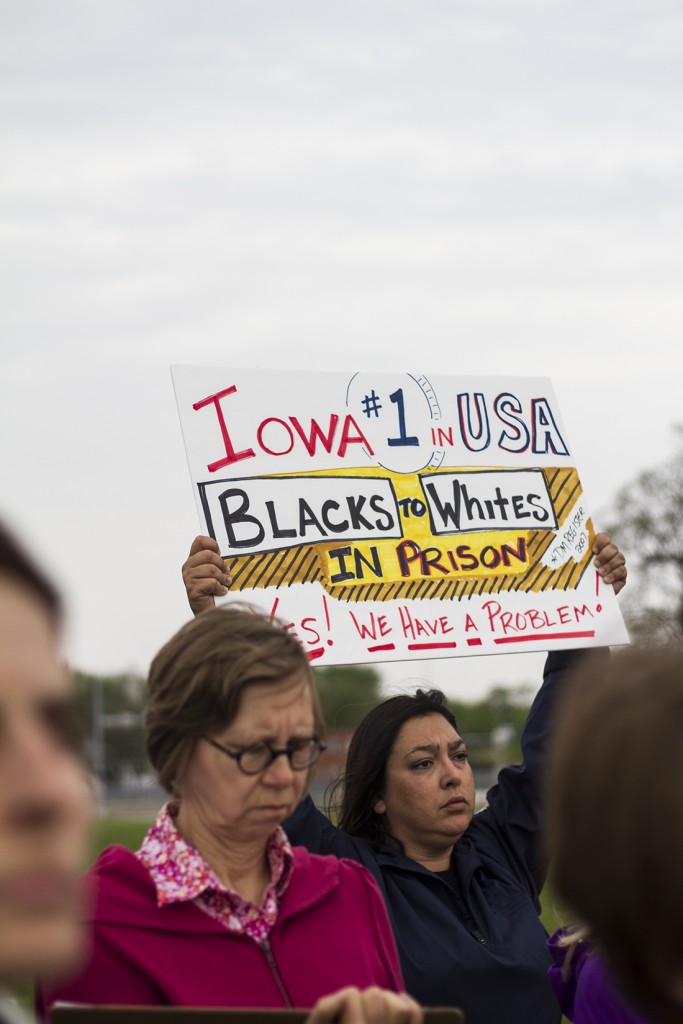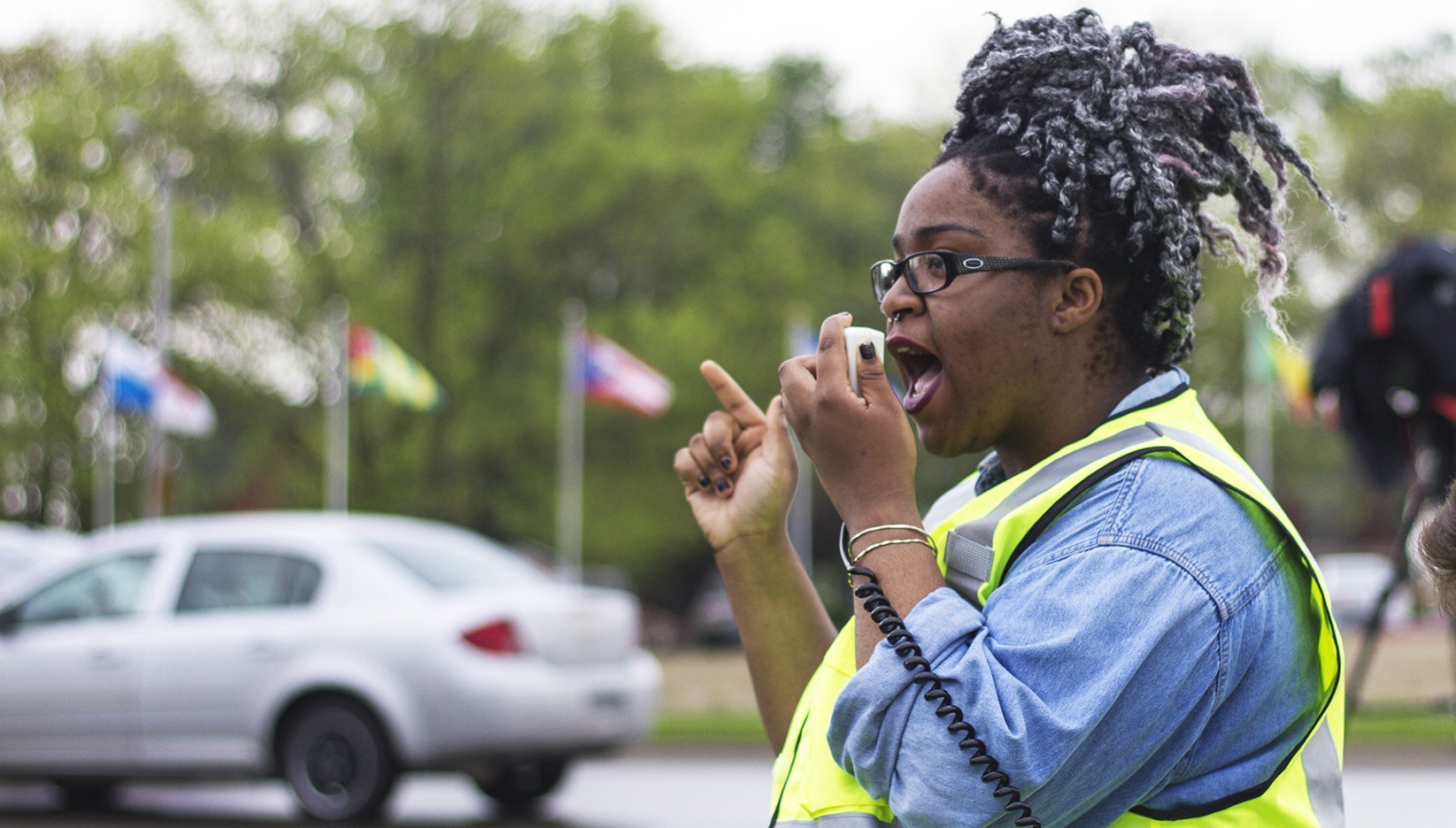It’s cloudy and damp — not ideal weather for a protest. But there the teen stands on a busy Des Moines street corner. She wears her neon yellow jacket and perches proudly on her white stepping stool, bullhorn in hand. She’s assembled nearly 100 people to stand in the rain with her, bearing signs and banners that read, in scribbled handwriting:
#blacklivesmatter
Expose and confront this racist system.
Hands up, don’t shoot.

A decade earlier at that same intersection — coincidentally named Martin Luther King Jr. Parkway — Kaija Carter, now 18, had her first experience with racial profiling. She was in fourth grade, sitting in the backseat of her mother’s car when a white police officer approached the car. Carter’s mom gave her basic instructions, which, back then, felt life-saving: “Don’t move.” As the officer approached the driver’s side window, Carter’s mother warned, “Whatever happens, stay looking forward.” Carter doesn’t remember why her mother was pulled over. She only remembers feeling helplessly confused as a white man made her mother cry.
Experiences like this eventually fueled Carter’s commitment as an activist. They’re the reason she’s standing on this corner today.
And Carter hasn’t wasted any time. Just one year out of high school — an early graduate — she has organized more than seven demonstrations to unify Des Moines’ voice with the national Black Lives Matter movement, a crusade to end police brutality, racial profiling, and unjust murders within the African American community. According to a study conducted by the Malcolm X Grassroots Movement, one African-American male is killed every 28 hours by a police officer, security guard, or self-appointed vigilante. This statistic — along with the racial profiling that led to the slaying of 17-year-old Trayvon Martin in 2012 — has now led thousands like Carter to spearhead collective action in their communities.

With no official Black Lives Matter chapter in Des Moines, Carter is a one-woman organizational show. She observes what national activists are doing, puts her own spin on their ideas, and gathers members of the community to help her coordinate. “Growing up here in Des Moines,” Carter says, “it almost seemed as if it was taboo for people to activate themselves and rally around social justice issues, especially for young people. I was ready to put what I was seeing all across the nation into action within my community.”
The movement became real for Carter when she traveled to Ferguson, Missouri, for the NAACP Journey for Justice March in December 2014. She met Lesley McSpadden, Michael Brown’s mother, and Carter recalls her presence as astounding. “Being in her home and seeing the pain in her eyes,” Carter says, “that made me realize how important being a part of this movement was.”
So she brought it home with her.

Carter had been experiencing racism in Des Moines all of her life. In stores, Carter was followed around by sales associates who expected her to steal. In school, a group of white classmates said she couldn’t sit with them because she wasn’t white. It’s why her trudge forward with the Black Lives Matter movement has not slowed down, despite tension from older activists who don’t fully align with her message. Local Des Moines figures have argued with Carter that it shouldn’t just be about black lives, but all lives. To that, Carter says, “I’m unapologetic, in this white space, about what I feel and how I feel, how I fight even the smallest oppression. It is hard to have that type of attitude in this space. But that’s how I live this movement.”
Back on the street corner, the rain has slowed. From her stepping stool, Carter instructs everyone to join hands. She takes a deep breath, places the bullhorn inches away from her lips, and with conviction she leads the crowd: “It is our duty to fight for our freedom. It is our duty to win.” She urges them to speak up for all of Des Moines. For all of Baltimore. For Freddie Gray — the latest victim of police brutality — and all the others who had fallen. “We must love each other and protect each other.”

